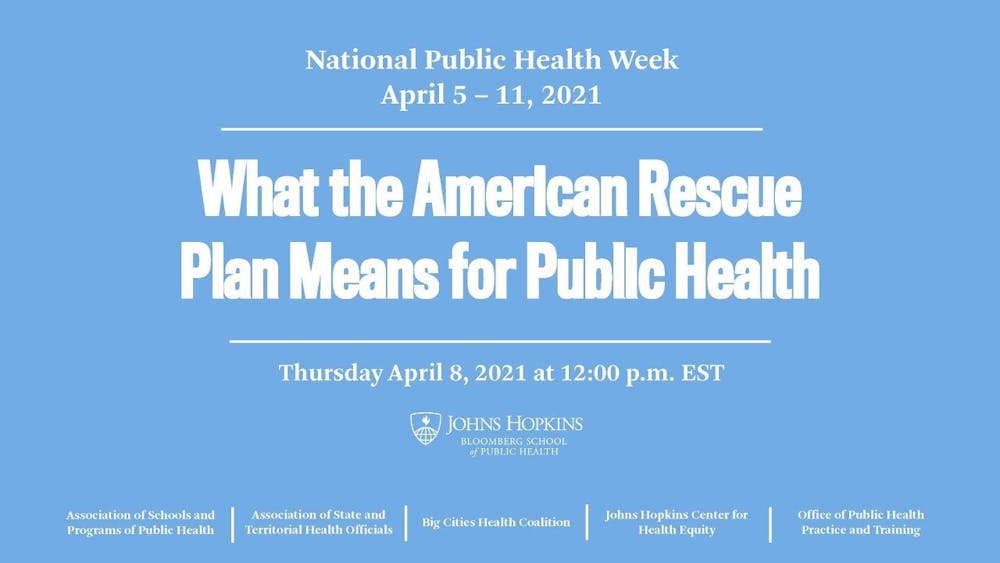Earlier this year, President Joe Biden announced the $1.9 trillion American Rescue Plan to create millions of jobs, address the climate crisis and foster racial equity in response to the pandemic.
A webcast hosted by the School of Public Health on April 8 during National Public Health Week examined the implications of this plan for improving health equity among communities of color and other disadvantaged groups.
Dr. Joshua Sharfstein, vice dean for public health practice and community engagement, spoke during the event and emphasized the unprecedented economic and social challenges COVID-19 has created.
“Public health has been stretched beyond anything that has happened in the last century. The American Rescue Plan includes the first real investment in public health over the course of the year and certainly the most substantial,” he said.
The panel comprised several prominent experts in public health and health-care equity: Dr. Lisa Cooper, executive director of the Hopkins Center for Health Equity; Chrissie Juliano, executive director of the Big Cities Health Coalition (BCHC); Carolyn Mullen, chief of governmental affairs and public relations for the Association of State and Territorial Health Officials; and Tony Mazzaschi, chief advocacy officer for the Association of Schools and Programs of Public Health.
Speakers examined four major implications of the American Rescue Plan, which include reducing child poverty, closing gaps in medical care, investing in community health and addressing social contributors to health.
“I believe this plan will most importantly and directly address poverty among children and families,” Cooper said.
She pointed to a study from Columbia University that found that the plan could cut child poverty in half.
Of the five million children this plan aims to raise out of poverty, the majority are from communities of color; this could lead to greater health equity between races. The plan will also enact further investments in early childhood development programs as well as provisions for child care.
In order to reduce gaps in access to medical care, the plan will provide 3.6 million uninsured people with financial assistance for the first time and introduce incentives for states to expand Medicaid.
Mullen highlighted the increased focus on community health the pandemic has brought.
“The American Rescue Plan adds nearly $100 billion in additional funding specifically for community health, bringing the total money invested to $400 billion during the pandemic,” she said.
The funding package will provide over $15 billion to support the distribution of vaccines and over $47 billion to support disease control efforts, including improvements to testing and contact tracing capabilities nationwide.
Additionally, Mullen noted the positive aspects of bolstering public health infrastructure for communities of color.
“This funding will help expand vaccination and testing efforts into hard-to-reach communities where people may not have transportation or access to the internet to sign up for vaccination. Community health centers will also provide the majority of care to poor people,” she said.
Lastly, the bill has major implications for addressing social contributors of health. These changes include expanding benefits to the Supplemental Nutrition Assistance Program (SNAP), providing emergency housing assistance and addressing air pollution in disadvantaged areas.
There are some potential drawbacks to the plan. For instance, Mazzaschi spoke about the lack of research investment and the short-term outlook of the plan.
“One of the disappointments of the bill is on the research side. The research community is working hard to get additional resources. Additionally, many of these legislations will need to be extended, as many are only two years, in order to be effective,” he said.
The American Rescue Plan is a step forward for health equity during the pandemic. However, it remains to be seen whether these improvements in health equity will continue past the pandemic.





